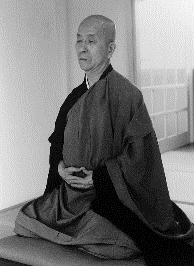
Nishijima Sensei, my teacher's teacher and the founder of Dogen Sangha, makes a nice distinction about what Buddhism essentially is.
He says that it is a 'Philosophy of Action'. This means that, rather than its adherents being concerned with just believing in things (idealism) or explaining things in tangible empirical and quantifiable terms (materialism), they are required to actually 'do' it (Action). The 'doing it' bit is clarified in zazen, and it's the central aspect of Zen Buddhism.
A nice, positive aspect of Buddhism is that we can still believe in things (such as God) and practice it, so you get people whom may be adherents to a religion such as Christianity but who also practice zazen sincerely. Buddhism is generally not a religion which excludes on the basis of belief or lack of it, but it requires us to look at the nature of our beliefs and our selves via the Action of zazen when we are not restricted by, or limited by, our own values and beliefs.
In zazen, and particularly in extended 'sesshin' ( zazen retreats), we have the opportunity to explore the nature of Buddhist 'Action': All sorts of stuff might come up when we sit zazen... we will get bored and frustrated, we might feel all spacey and spiritual, and we'll likely have to deal with physical discomfort and all sorts of daydreams and fantasies; but we can just firmly sit through it all and learn very directly that we needn't be pushed around by what we think and feel.
We're actually already free to act despite what we think and feel with our body and mind and despite all our habitual reactions to our 'stuff', but we need to really practice this principle often and regularly to substantially realise it in our lives.



